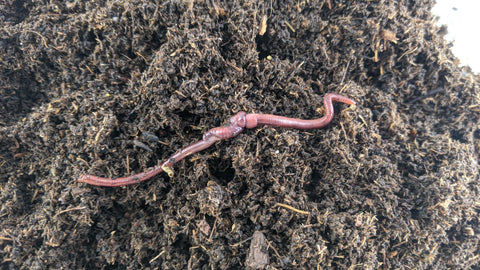
How Long Do Worms Live
One of the more intriguing questions we often get about worms is how long do they live.
While their primitive nature suggests worms may have a fleeting existence, the reality is that worms can have surprisingly varied, and in some cases long, lifespans.
Let's unearth the facts and explore the enduring lives of these remarkable invertebrates and how you can ensure they live a long time.
How Long Do Worms Live?
The length of a worm’s life can vary greatly depending on their species and environmental conditions, but on average a worm will live between 2 to 7 years. Earthworms living in gardens or urban areas live 1-3 years on average due to environmental risks like soil quality and climate, while worms living in a more natural setting with better conditions can live 4-7 years on average.
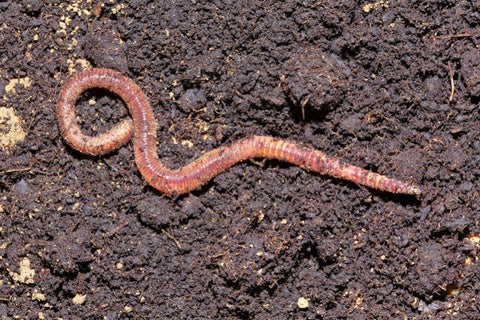
Note that these are averages and actual lifespans of worms will vary when considering the myriad of worm species that live in different ecological niches across the globe.
What is the Lifecycle of a Worm?
The lifecycle of a worm is composed of several stages, including the cocoon, hatchling, juvenile, and adult phases. Most worm species spend several weeks in a cocoon and then grow quickly once hatched, reaching the juvenile phase in 3-4 weeks. Worms then reach sexual maturity in 2-3 months and after 6-9 months are considered full adults.
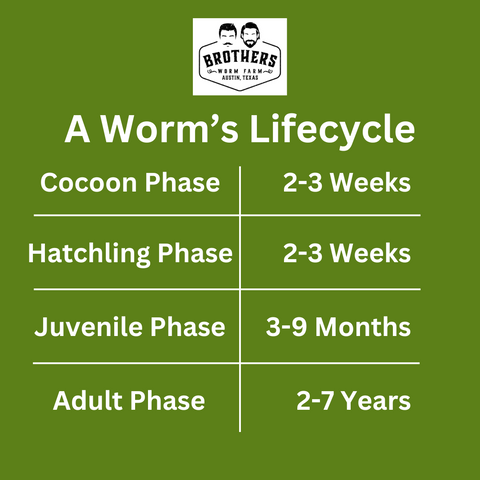
How Long do Worms Live: Cocoon Phase
Earthworms begin their life cycle encased in a cocoon, a tiny, lemon-shaped capsule housing several embryos.
The amount of time an earthworm spends in this protective casing can vary, ranging from a few weeks to several months, depending on environmental conditions such as temperature and humidity.
Worm cocoons are built to endure adverse conditions, ensuring the next generation can survive.
Once conditions are favorable, the embryos within the cocoon develop and eventually emerge as hatchlings.
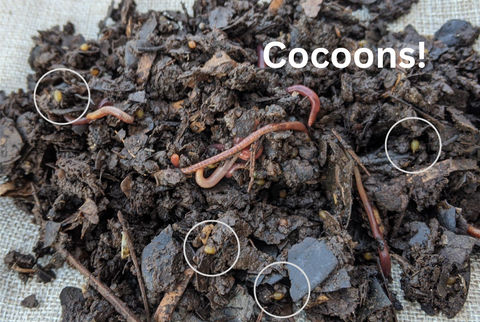
The cocoon stage is crucial as it protects the young worms from harsh conditions and predators, safeguarding the species' continued survival.
How Long do Worms Live: Hatchling Phase
Upon emerging from the cocoon, earthworm hatchlings are tiny, translucent, and vulnerable. During this initial stage, they rely on the nutrients remaining in their egg sac to sustain them until they can fend for themselves. This period of dependency is relatively short-lived as within a day or so they begin to feed on organic matter in the surrounding soil.
As hatchlings grow and their bodies darken, they become more independent, venturing farther into the soil to forage for food.
This stage is critical for their development, as they must quickly adapt to their environment to ensure their survival and eventual transition into juveniles.
How Long do Worms Live: Juvenile Phase
Following the hatchling stage, earthworms enter their juvenile phase, characterized by continued growth and development.
Within a month or so juveniles begin to resemble their adult counterparts in appearance, but they cannot yet reproduce.
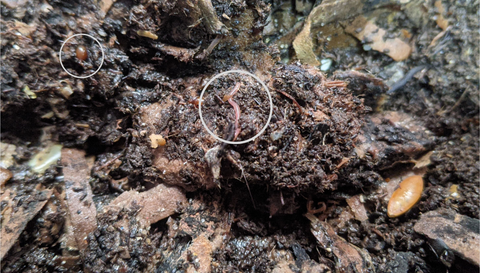
This stage will last several months or longer, during which time the worm eats voraciously and continues growing.
By the end of the juvenile stage, earthworms are sexually active with full reproductive capabilities.
How Long do Worms Live: Adult Phase
Adulthood signifies the peak of earthworms' life cycle, when they reach full size and reproductive maturity.
Adult earthworms can be identified by their clitellum, a thickened band near the head that plays a key role during reproduction.

Earthworms spend most of their lives in the adult phase, where worms actively engage in mating and cocoon production.
Mature adult worms like the red wiggler are prolific breeders, generating up to 1 cocoon per week when environmental conditions are best (usually during the spring and fall months).
From each cocoon a mature adult produces, 2-3 baby worms will be hatched on average.
How do Earthworms Die?
There are a number of ways that earthworms die in gardens and in nature, ranging from environmental and climate factors to natural predators and human-induced issues. The following conditions can cause worms to die:
In a worm bin, most earthworms die due to bedding, moisture, temperature, or food issues.
Frequently Asked Questions: How Long Do Worms Live
Do worms feel pain?
Since worms lack an advanced central nervous system, science does not currently believe that worms feel pain in the way humans do. However, worms do possess neural receptors that respond to external stimuli like heat, chemicals, and touch. The presence of these neurons suggest a form of pain or sensation detection in earthworms that helps worms avoid or respond to environmental hazards.
How long can earthworms live?
Earthworms live for 2-7 years on average. Earthworms in urban settings like gardens and yards tend to live 1-3 years on average due to environmental hazards brought on by climate changes like drought and human factors like the use of pesticides and insecticides. In a more natural setting with fewer environmental risks, earthworms tend to live 4-7 years on average.
How many babies do earthworms have?
Most earthworm species reproduce through cocoons, and each cocoon can have 1-20 babies. On average, an earthworm cocoon will have 2-3 baby worms. Since many adult earthworms like the red wiggler can produce 1 cocoon per week, earthworms can double their population size in 3-6 months when conditions are good for breeding and hatching babies.
What is the average lifespan of a worm?
The average lifespan of a worm is 2 to 7 years. During their lifespan, worms are hatched from a cocoon, spend 6-9 months in a juvenile phase, and then spend the majority of their life as sexually mature adult worms. As adults, worms are prolific breeders, producing up to 1 cocoon per week that can hatch 1-20 baby worms. Worms’ primary causes of death are predators, climate change, and human activities like tilling and the use of pesticides.
Do worms have genders?
Earthworms are simultaneous hermaphrodites, which means they have both male (testes) and female (ovaries) reproductive organs. Both of these sexual organs are used when earthworms join and mate during the reproductive cycle. This means worms will be the genetic father of some of their offspring and the genetic mother of other offspring.
How do worms have babies?
Worms have babies through a mating process that produces cocoons for both worms. This process starts with worms laying upside down next to one another and forming a tight embrace. Each worm produces sperm that travels to the other worm’s sperm sac. After the mating is complete, a band of mucus will carry the sperm over the worm’s egg pouch where fertilization occurs. This band ultimately rolls off the worm’s neck and becomes a cocoon, from which 1-20 babies will hatch.
How do worms reproduce?
Earthworms reproduce by laying upside down next to one another and joining their head areas in a tight embrace.
- Each worm then secretes sperm into tiny storage sacs of their partner.
- The worms then untangle and self-secrete a fluid that hardens and becomes the cocoon.
- This cocoon rolls off the worm’s head, and fertilization occurs when it passes over the ovaries and sperm storage sacs.
- From these cocoons tiny worms will hatch anywhere from 2 to 4 weeks or longer based on conditions.
